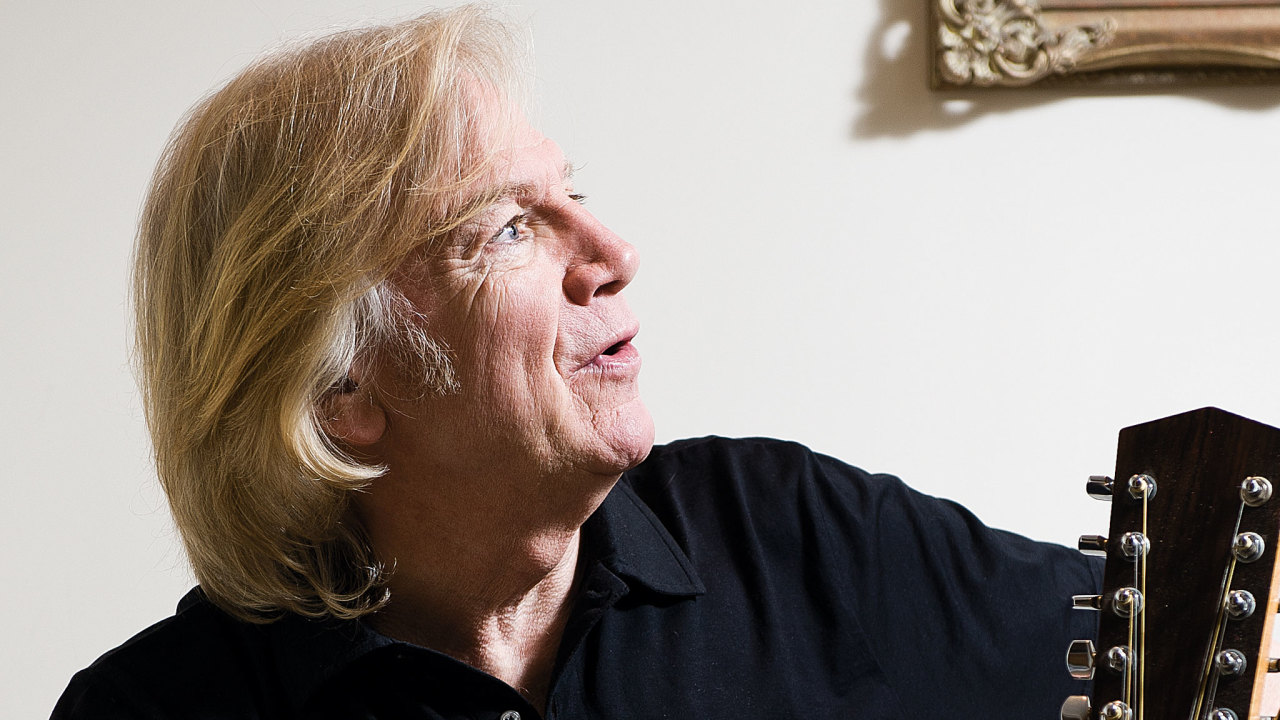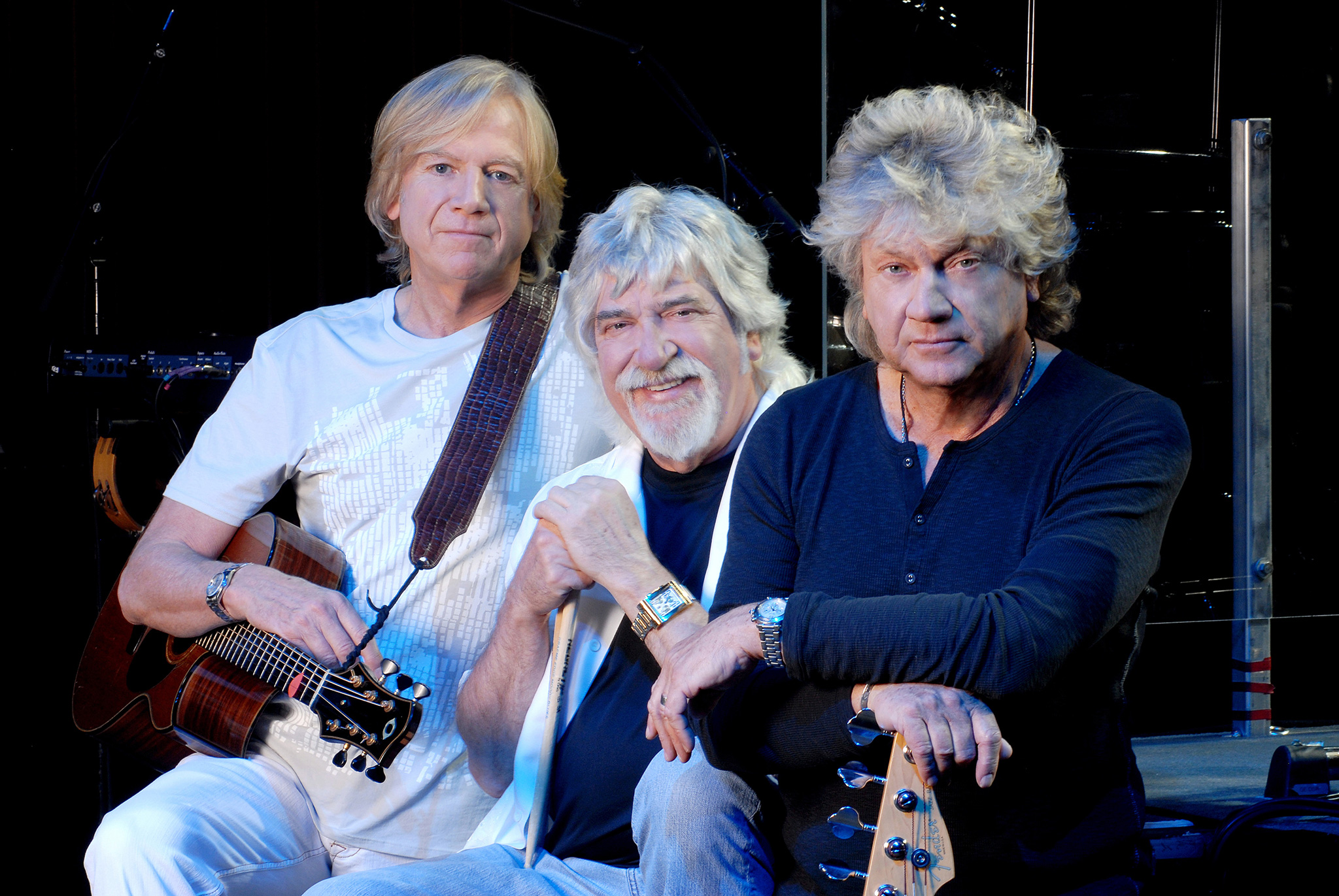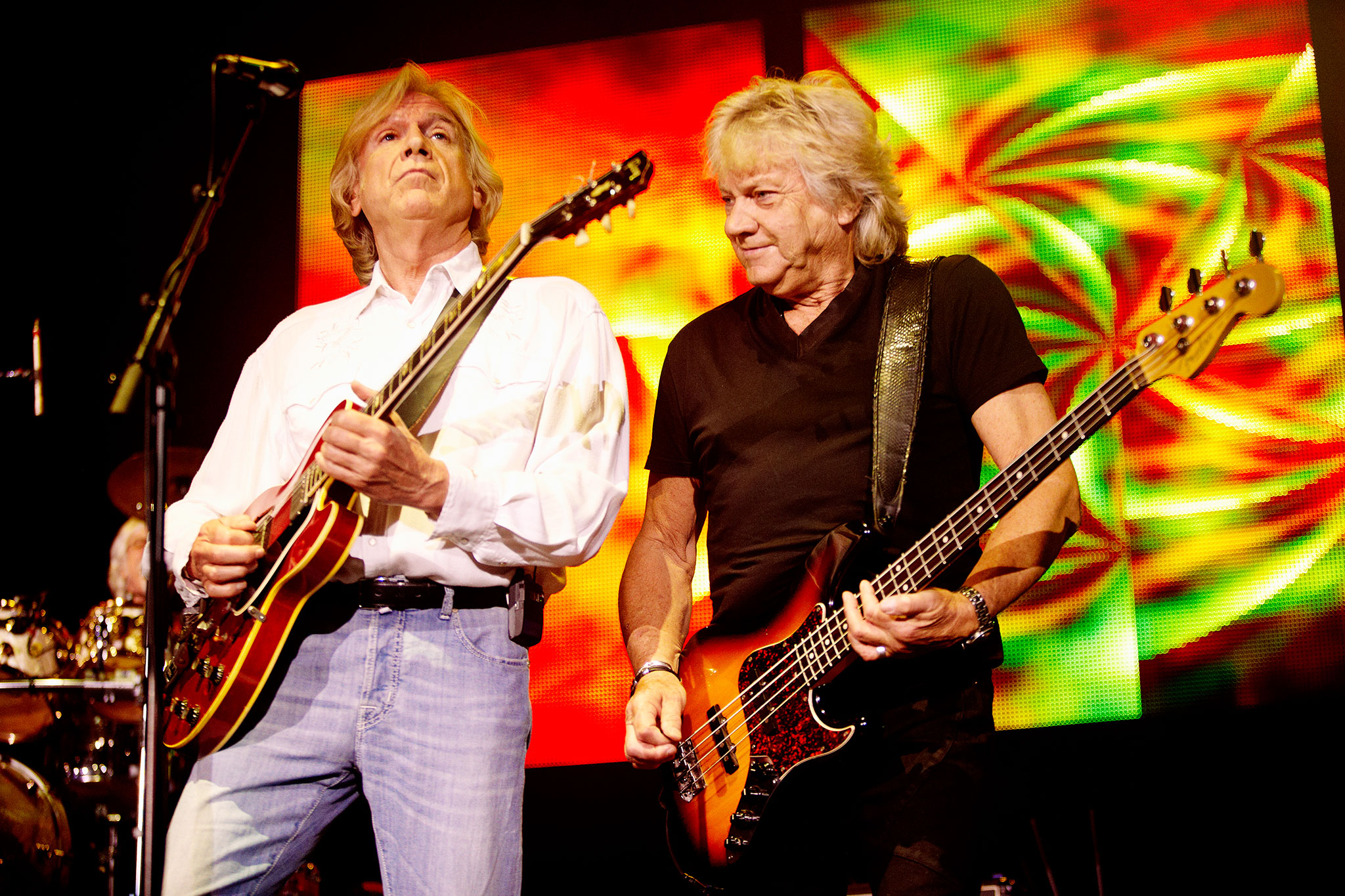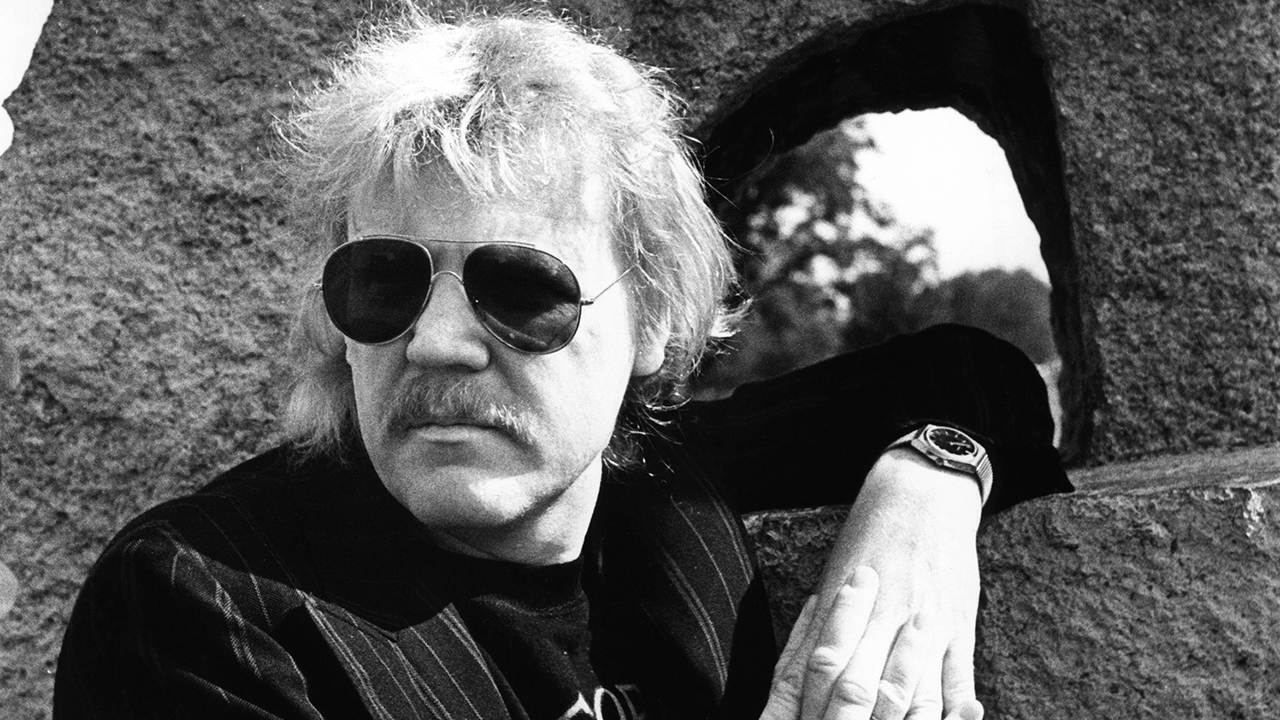"We love touring round the UK, and we do have future recording plans."
Justin Hayward heralds the start of the Moodies latest UK tour with great news for fans...

The Moody Blues will be heading out on a 14-date UK tour from June 6.
Moreover, Justin Hayward follows this up with a series of eight solo shows. It would appear that the man who joined the Moodies in August 1966 has no intention of slowing down. And, as he explains to Prog, the band will be focusing to some extent on their 80s period for their tour. But what about the chances of anything new from them? You might be surprised by his reaction to that question.
The upcoming tour is called Timeless Flight - The Polydor Years. So will the set come solely from albums released during that period?
“Well. We shall certainly feature a few more songs from that era. But we shan’t be solely concentrating on those songs. It’s nice, though, to revisit the albums we did back then. That was an important time for the Moody Blues, because these songs gave us a new audience, and revitalised the band.”
Why have you decided to focus now on songs from those years?
“It’s because Universal have only recently put out the box set The Polydor Years – 1986-1992. The label actually put it together with no involvement from us, but did a superb job. And, it seemed natural for us to take this opportunity to give a little more emphasis to this part of our career.”
Are there any songs from that era you are particularly keen to playing live?
Sign up below to get the latest from Prog, plus exclusive special offers, direct to your inbox!
“It will be great to do Say It With Love and Nervous Again. I am looking forward to playing these on the UK tour. But there are also the classics from those times, like Your Wildest Dreams and I Know You’re Out There Somewhere. They mean so much to us, because of the way the fans took to them, and made them crucial to the Moodies. Ultimately, though, everything we play live means a lot to us. Otherwise we wouldn’t be doing them.”
How do you put together a setlist?
“Well, Graeme Edge, John Lodge and I sit down and work it all out. Of course, it becomes difficult with so much to choose from. But we start with the obvious ones, the songs we can never leave out, and build it from there. It’s like a football team, I suppose. You start with the spine, and then develop it outwards. Unless all three of us agree to include a song, then we don’t do it.”
Will you vary the set from night to night?
“No, we don’t do that. Partly that’s down to the production we take on the road. The screens and lights have to be set up in a certain way each night, so the music has to fit. We can’t suddenly start to alter the songs we do. Everything has been meticulously worked out, and has to remain like that. But we are always lost in the moment onstage, so there’s no time for boredom.”

Some people might be surprised that the Moodies are doing so many dates on the UK tour. Many might have expected you to do one or two arenas only. What’s the thinking behind this scheduling?
“We love going round the country. There are some venues which mean a lot to us, because they bring back great memories from our early days. We aren’t a band who’d be happy just to do an arena show, and have everyone come to us. We all still enjoy going wherever people want us.
“On the last tour we did the O2 Arena in London, but this time it’s Hammersmith Apollo. That’s because fans told us they much preferred it when we did the Royal Albert Hall and not the O2. But as the Albert Hall was booked, we’ve gone for Hammersmith, which will be like visiting an old friend.”
One song the band haven’t done live for so long is Go Now, the first hit from 1965. Any chance it will come back into the set?
“That song really belongs to Denny Laine. He was the singer on the hit version, and without him in the band [Laine left in 1966] there’s no point in doing this. Who would sing it now? Denny took the song with him and still does it brilliantly live. It doesn’t belong to the Moodies as we are, and I see nothing to be gained by putting it back in the set.”
You are going straight from this Moodies tour into your own dates. Will it be easy to make the switch in musical emphasis from band material to your own?
“That’s no problem at all. It’s a very different experience, because the music is more intimate, and acoustic. But it’s something I love. I get to play these songs the way I’d originally written them, which is rewarding. I am also playing in areas where the Moodies aren’t visiting, so it will be fresh for me and the audience.”
Do you find it easy to become the sole focal point onstage, as happens with your own show, as compared to sharing the spotlight with John Lodge?
“I am really looking forward to playing with [guitarist] Mike Dawes and [keyboard player] Julie Ragins again. They’re just so talented, and bring something different to my music. So, for me, it’s not all about having the spotlight, but sharing it with new people. It keeps everything exciting for me.”

You and John have often said recently there’s no demand for a new Moody Blues album, yet you both have either recently released, or are about to release, solo albums. Surely that suggests there is a demand!
“Well, you might have caught me on the hop when I said that in the past. I was probably just talking off the top of my head without thinking it through. There is now a plan for us to do something audiovisual in the near future, and this would include one or two new songs. But I really can’t say anything further at the moment. I’m not trying to be mysterious. It’s just that we haven’t yet worked out what we’ll do. So, you now know as much about this project as I do.”
**
**
Next year is the 50th anniversary of John Lodge and yourself joining the band. Will yo be celebrating this landmark?
“The first thing we’ll do is hug each other, I expect. But yes, this is an anniversary that means a lot to John and me, and also to Graeme. Let’s not forget him, because he’s been in the band longer than anyone. There are a few ideas we have to mark the occasion. But right now, they are no more than thoughts.
“I still recall the first time I met Mike [Pinder] when I came up to London with he hope of joining the band. And then a little later I got to meet Graeme and Ray [Thomas] at a house in Esher. I only met John a little while later.
“In those early days, none of us had any money, so we’d literally be hiding from the milkman because we couldn’t pay the bill. All of that is still fresh in my mind. So, it means a lot that our age we are still able to tour, and to pay the milkman!”
Malcolm Dome had an illustrious and celebrated career which stretched back to working for Record Mirror magazine in the late 70s and Metal Fury in the early 80s before joining Kerrang! at its launch in 1981. His first book, Encyclopedia Metallica, published in 1981, may have been the inspiration for the name of a certain band formed that same year. Dome is also credited with inventing the term "thrash metal" while writing about the Anthrax song Metal Thrashing Mad in 1984. With the launch of Classic Rock magazine in 1998 he became involved with that title, sister magazine Metal Hammer, and was a contributor to Prog magazine since its inception in 2009. He died in 2021.

